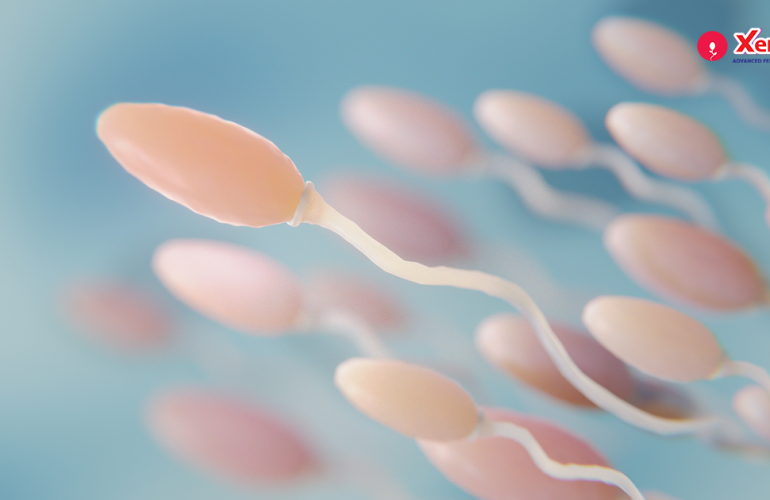After struggling for more than a year to conceive, which is the definition of infertility, it can be disheartening to see other couples holding their babies or try to explain to others why you haven’t had a baby yet. So in vitro fertilization (IVF) has become a ray of hope for couples struggling with infertility. IVF is a series of procedures where the woman’s ovaries are stimulated to produce more than one egg and these eggs are retrieved, combined with sperm in a laboratory setting and the resulting embryo is transferred back to the woman’s uterus for implantation potentially leading to a successful pregnancy. But before you begin your IVF journey, the doctor will recommend undergoing a few tests to try to find out possible reasons for the infertility and also to make sure all the parameters like hormonal levels are optimal for a successful IVF. If some parameters are slightly off, the doctor could tweak or adjust the procedure and medications accordingly so that the best course of action is followed for your unique circumstances.
What are these pre-IVF tests?
Before the tests are carried out, the doctors at Xenith will meet with you for pre-pregnancy consulting to take an in depth look at your medical and family history like any chronic diseases like diabetes, your age, weight, a list of medications including any vitamins and supplements that you are taking, your diet and other such details in order to ascertain if you are a good candidate for IVF. They will also look at your past history with infertility, details about any previous miscarriages, failed IVFs, results of any previous tests, or other such information. They will also explain what is involved in the IVF procedure and a list of tests that will need to be done prior to IVF. Following these discussions, they might begin these pre-IVF tests:
- Semen analysis– A semen analysis accurately measures the number of sperm, their motility (ability to move), their morphology (size and shape), the total volume and consistency of the ejaculated sample. Sperm that have low mobility and cannot swim very well or move in a forward direction are thus not able to reach the egg. If the sperm quality is not great or if the counts are low, ICSI or Intracytoplasmic Sperm Injection, where a single sperm is carefully inserted into each egg to increase the chances of egg fertilization, might be carried out. If there is no sperm found, then sperm might need to be collected directly from the testicles. Digital high magnification is a technique where the sperm can be highly magnified to see very small defects in order to select better quality sperm.
- Ovarian reserve testing-is done to assess how many eggs are there in a woman’s ovaries (ovarian reserve). Since a female is born with all the eggs she will ever have, this amount and quality of the eggs will decrease with age and for other reasons. Having a poor ovarian reserve means the likelihood of IVF success is low because the fertility drugs meant to stimulate your ovaries may not work as well. So how is this determined? Some blood tests will be done to determine levels of certain hormones. FSH is a hormone that is produced to regulate the menstrual cycle and the egg production. Abnormally high FSH levels might be a sign of poor ovarian reserve although it does get higher the older you get. Antimullerian hormone (AMH) is a hormone produced by the follicles which can eventually mature to become an egg in the ovaries. So, the AMH levels can predict the number of potential eggs a woman has. Sometimes, the ovaries can respond too much leading to ovarian hyperstimulation syndrome (OHSS) where the ovaries can swell and cause pain and this has to be prevented. Estradiol is another hormone that can predict the ovarian reserve. Antral follicle count measures the number of follicles up to 10mm in size using transvaginal ultrasound.
- Prolactin and thyroid stimulating hormones(TSH) -prolactin is associated with breast milk production and hinders ovulation.(1) It could affect the progesterone levels which can promote the uterine lining for implantation by the fertilized egg. TSH plays a role in controlling the body’s metabolism and affects the production of thyroid hormones. Hypothyroidism (decrease in thyroid hormones) could lead to cyst growth in the ovaries and increased production of prolactin. Hyperthyroidism (increase in thyroid hormones) could lead to increased risk of miscarriage and decreased sperm count in men. The blood test could also test your blood sugar levels for diabetes.
- Screening for infectious diseases- certain infectious diseases like Hepatitis B, HIV, Chlamydia, Syphilis, and some others could affect the fetus development or cause severe complications in pregnancy. Screening of these diseases can ensure that both the mother and baby are safe
- Ultrasound testing- The uterus could have some abnormalities that could prevent implantation or other issues. Transvaginal ultrasound can be used to scan the uterine cavity and the lining for any discrepancies. Newer technologies like 3D transvaginal ultrasound can make it even easier to find any anomalies in the uterus. (2) Saline infusion sonohysterogram could also be carried out where the uterus is filled with saline and the saline solution helps to outline the uterine walls making it easier to spot polyps, fibroids, scar tissue or any other abnormalities.
- Hysteroscopy-At times the uterine cavity is checked using an endoscopic procedure called Hysteroscopy. A scope with a camera attached to it is introduces inside the uterine cavity to check for inflammation, presence of polyps, infections and other issues. It also helps to assess any adhesions in the cavity. It can be used as a therapeutic procedure as the issues can be corrected in the same sitting.
- Genetic testing– might be done to see if there are any chromosomal or genetic abnormalities that could prevent a successful pregnancy or be passed on to the offspring.
- Mock embryo transfer- is a trial run before the actual embryo transfer and helps the doctor see how your body would react under these circumstances, measure the distance from the ideal implantation location in the uterus to the cervix, and see if there are any restrictions in the path or scarring to avoid in the uterus as well as determine the best route for the implantation.
Upon looking at the results of these tests, some more additional tests might need to be performed like a laparoscopy which is a minimal surgical procedure done in cases of hydrosalpinx, where the tubes are filled with fluid and need to be removed before the IVF procedure. The doctor might need to administer certain medications depending on the results and determine the type of procedures to carry out in order to boost IVF outcomes and give you a personalized treatment plan meant specifically for you. Xenith Advanced Fertility Centre is one of the best IVF centers with an excellent success rate especially for couples who have had to deal with a few IVF failures already. Come talk to us and let us help you fulfill your dreams of having a child.




